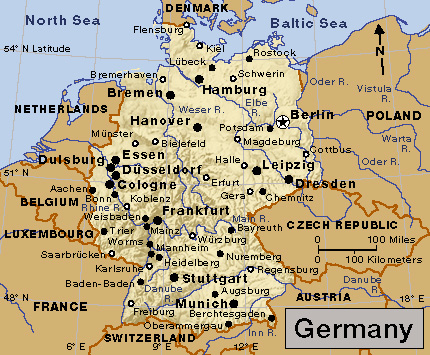Lübeck, << LOO behk >> (pop. 210,305) is the most important German port serving shipping on the Baltic Sea. The city lies in Germany on the Trave River, which empties into the Baltic. Lübeck is a center of machine manufacturing and shipbuilding. It is also known for its marzipan (almond and sugar candy) products. It has a number of medieval buildings, including its old town hall and its cathedral.

A natural harbor made Lübeck an important trading point from the time it was founded in 1143. In 1226, the city became a self-governing imperial free city (see Free city). Lübeck was leader of the Hanseatic League, a commercial union of north German cities that grew out of trade associations that had begun to develop in the late 1100’s. By 1669, when the last meeting of the league’s diet (assembly) was held, Lübeck had lost much of its importance. See Hanseatic League. Completion of the Elbe-Trave Canal in 1900 reestablished Lübeck as an important port by connecting it to the Elbe River, one of Europe’s busiest waterways.
